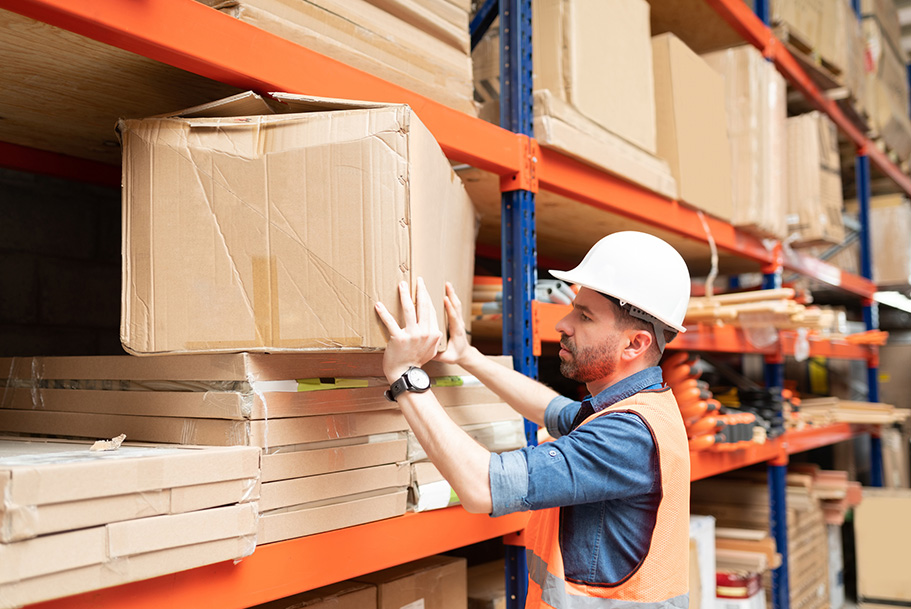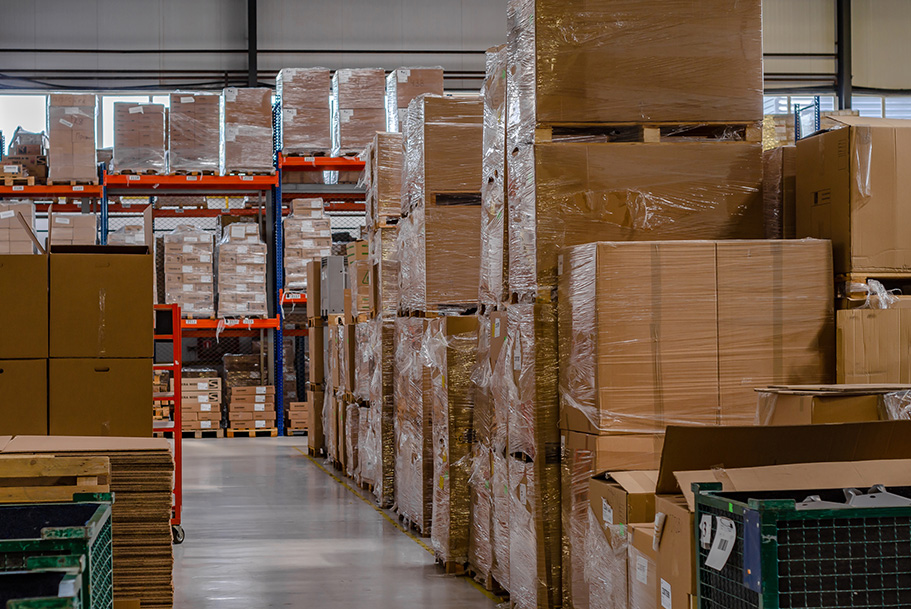Uncover Hidden Gems: Government Liquidators For Unbeatable Deals
Government agencies and departments often have surplus property, equipment, and supplies that they no longer need. So, what happens to these items? The answer: government liquidators.
Government liquidators are companies that purchase surplus government property and resell it to the public. This can include a wide variety of items, from office furniture to vehicles to heavy machinery. Government liquidators typically sell their items through online auctions or public sales.
There are many benefits to buying from government liquidators. For one, the prices are often much lower than what you would pay for new items. Additionally, government liquidators often sell items that are no longer available from the original manufacturer. Finally, buying from government liquidators can be a great way to support your local government.
If you are interested in buying surplus government property, there are a few things you should keep in mind. First, you will need to find a government liquidator that sells the types of items you are interested in. Second, you will need to register with the liquidator and provide proof of your identity. Finally, you will need to be prepared to pay for your items in advance.
Government liquidators play an important role in the government procurement process. They help government agencies and departments to dispose of surplus property in a cost-effective and efficient manner. Additionally, government liquidators provide the public with an opportunity to purchase high-quality items at a fraction of the cost of new items.
Government Liquidators
Government liquidators play a vital role in the government procurement process, helping agencies dispose of surplus property and providing the public with access to valuable goods at a fraction of the cost.
- Tori Spelling First Wedding
- Jason Beghe
- Mark Paul Gosselaar Mom And Dad
- Toby Jones
- Who Is Angela Lansbury Married To
- Surplus Disposal: Liquidators help government entities dispose of unneeded property, reducing storage costs and promoting efficiency.
- Public Access: They provide the public with an opportunity to acquire surplus goods, ranging from office equipment to vehicles, at competitive prices.
- Cost Savings: Liquidators offer significant savings compared to purchasing new items, benefiting both individuals and businesses.
- Variety of Goods: Government liquidators handle a diverse range of surplus items, catering to various needs and industries.
- Transparency: The liquidation process is typically open and transparent, ensuring fairness and accountability.
- Economic Impact: Government liquidators contribute to the economy by facilitating the reuse of surplus goods, reducing waste, and creating business opportunities.
In conclusion, government liquidators are essential players in the government procurement cycle. They enable efficient surplus disposal, provide public access to affordable goods, and stimulate economic activity. Their services benefit taxpayers, government agencies, and the public by promoting cost savings, sustainability, and transparency.
1. Surplus Disposal
Government liquidators play a vital role in surplus disposal for government entities. Surplus property refers to items that are no longer needed by government agencies or departments. Liquidators purchase this surplus property and resell it to the public, which helps government entities save on storage costs and promotes efficiency in property management.
- Reduced Storage Costs: Government agencies often have limited storage space, and storing surplus property can be costly. Liquidators help reduce these costs by purchasing and removing unneeded items, freeing up valuable storage space for essential equipment and supplies.
- Efficient Property Management: Liquidators provide a streamlined and efficient process for disposing of surplus property. They handle all aspects of the liquidation process, including inventorying, marketing, and selling the items. This allows government agencies to focus on their core responsibilities without being burdened by the complexities of property disposal.
- Environmental Sustainability: Liquidators help promote environmental sustainability by facilitating the reuse of surplus property. Instead of discarding these items, they are resold and given a new life, reducing waste and conserving resources.
- Revenue Generation: In some cases, liquidators may generate revenue for government entities by selling surplus property. This revenue can be used to support government programs or offset the costs of property disposal.
In conclusion, government liquidators play a crucial role in surplus disposal for government entities. They help reduce storage costs, promote efficient property management, contribute to environmental sustainability, and in some cases, generate revenue. By partnering with liquidators, government agencies can effectively dispose of unneeded property while maximizing the value of their surplus assets.
2. Public Access
The public access provided by government liquidators is a significant aspect of their role in the government procurement process. It allows the public to acquire surplus goods at competitive prices, contributing to several key benefits.
- Cost Savings: Liquidators offer surplus goods at significantly lower prices compared to retail or new purchases. Individuals, businesses, and non-profit organizations can save substantial amounts by acquiring items they need through government liquidators.
- Access to Unique Items: Government liquidators often have access to unique and hard-to-find items that may not be readily available in the commercial market. This includes specialized equipment, rare collectibles, and vintage items.
- Community Development: Liquidators support local communities by providing affordable access to essential goods. Non-profit organizations, schools, and community groups can acquire equipment, supplies, and vehicles at reduced costs, benefiting their programs and services.
- Environmental Sustainability: By facilitating the reuse of surplus goods, liquidators contribute to environmental sustainability. Instead of discarding these items, they are given a new life, reducing waste and conserving resources.
In conclusion, the public access provided by government liquidators offers numerous benefits to individuals, businesses, and communities. It promotes cost savings, provides access to unique items, supports community development, and contributes to environmental sustainability. The ability of the public to acquire surplus goods at competitive prices is a valuable service provided by government liquidators.
3. Cost Savings
The cost savings offered by government liquidators are a significant aspect of their role in the government procurement process. Liquidators purchase surplus government property at discounted prices and resell it to the public, resulting in substantial savings for individuals and businesses.
One of the key reasons for these cost savings is the nature of surplus property. Surplus property often consists of items that are no longer needed by government agencies or departments but are still in good condition. This allows liquidators to acquire these items at a fraction of their original cost and pass on the savings to their customers.
For example, a government liquidator may purchase a surplus fleet of vehicles that have been used by a government agency. These vehicles may have low mileage and be well-maintained, but they are no longer needed by the agency. The liquidator can then resell these vehicles to the public at significantly lower prices than what would be charged for new vehicles.
The cost savings offered by government liquidators can have a positive impact on both individuals and businesses. Individuals can save money on essential items such as furniture, appliances, and electronics. Businesses can save money on equipment, supplies, and vehicles, reducing their operating costs and increasing their profitability.
In conclusion, the cost savings offered by government liquidators are a key benefit of their services. By providing access to surplus government property at discounted prices, liquidators help individuals and businesses save money and acquire essential items at a fraction of the cost of new purchases.
4. Variety of Goods
Government liquidators handle a diverse range of surplus items, catering to various needs and industries. This variety is a key aspect of their role in the government procurement process, as it allows them to meet the diverse needs of government agencies and the public.
- Consumer Goods:
Government liquidators offer a wide selection of consumer goods, including furniture, appliances, electronics, and clothing. These items are often in good condition and can be purchased at a fraction of the cost of new items.
- Industrial Equipment:
Liquidators also sell industrial equipment, such as machinery, tools, and vehicles. This equipment is often used by government agencies for construction, maintenance, and other tasks. Liquidators can provide businesses and individuals with access to high-quality industrial equipment at discounted prices.
- Vehicles:
Government liquidators sell a variety of vehicles, including cars, trucks, and buses. These vehicles may have been used by government agencies for law enforcement, transportation, or other purposes. Liquidators offer these vehicles to the public at competitive prices, making them an attractive option for individuals and businesses alike.
- Other Surplus Items:
In addition to the categories mentioned above, government liquidators may also sell a variety of other surplus items, such as office supplies, medical equipment, and real estate. This diverse range of goods ensures that liquidators can meet the needs of a wide range of buyers.
The variety of goods handled by government liquidators makes them a valuable resource for individuals, businesses, and government agencies alike. By providing access to a wide range of surplus items at discounted prices, liquidators help to reduce waste, save money, and support the efficient operation of government.
5. Transparency
Government liquidators play a vital role in ensuring transparency in the liquidation process, which involves the disposal of surplus government property. This transparency is crucial for maintaining fairness, accountability, and public trust in the government procurement system.
- Open and Accessible Procedures: Government liquidators typically follow well-defined procedures for the liquidation process, which are made available to the public. These procedures outline the steps involved, from the initial assessment of surplus property to the final sale and distribution of proceeds.
- Public Notice and Marketing: Liquidators advertise and publicize surplus property sales through various channels, such as online platforms, newspapers, and industry publications. This ensures that potential buyers have equal access to information about the available items and the terms of the sale.
- Competitive Bidding: In most cases, government liquidators use competitive bidding processes to sell surplus property. This allows multiple buyers to participate and offer their bids, promoting fair competition and maximizing the return on the sale.
- Documentation and Reporting: Liquidators maintain detailed records and documentation throughout the liquidation process. This includes records of property inventory, sale transactions, and the distribution of proceeds. These records are available for review and audit by government agencies and the public, ensuring accountability and transparency.
Transparency in the liquidation process is essential for several reasons. First, it helps to prevent corruption and fraud by ensuring that all transactions are conducted in an open and verifiable manner. Second, it fosters public trust in the government procurement system by demonstrating that surplus property is being disposed of fairly and without favoritism. Finally, transparency promotes accountability by providing a clear audit trail that can be used to track the movement of surplus property and the proceeds from its sale.
6. Economic Impact
The economic impact of government liquidators is significant as they play a pivotal role in facilitating the reuse of surplus goods, reducing waste, and creating business opportunities. The reuse of surplus goods has several positive economic effects. Firstly, it helps to conserve natural resources and reduce environmental pollution by diverting usable items from landfills. Secondly, it provides cost-effective options for individuals and businesses, stimulating economic activity and promoting affordability. Thirdly, it supports job creation in the secondary market for refurbished and resold goods.
Government liquidators also contribute to waste reduction by providing an organized channel for the disposal of surplus property. Surplus goods that are no longer needed by government agencies can be sold to the public through liquidators, extending the lifespan of these items and minimizing the amount of waste generated. Furthermore, liquidators often offer recycling and disposal services for items that cannot be resold, ensuring proper waste management and environmental protection.
In addition, government liquidators play a vital role in creating business opportunities. They provide a platform for entrepreneurs and small businesses to acquire inventory at competitive prices. These businesses can then resell the goods to consumers, creating jobs and contributing to economic growth. Moreover, liquidators offer opportunities for specialized businesses to develop around the repair, refurbishment, and resale of surplus items, fostering innovation and entrepreneurship.
In summary, government liquidators make substantial economic contributions by facilitating the reuse of surplus goods, reducing waste, and creating business opportunities. Their activities promote resource conservation, affordability, and job creation, while also supporting waste management and environmental sustainability.
FAQs on Government Liquidators
This section addresses frequently asked questions (FAQs) about government liquidators, providing informative answers to common concerns or misconceptions.
Question 1: What is the role of government liquidators?
Government liquidators are companies that purchase surplus government property and resell it to the public. Surplus property includes items that are no longer needed by government agencies or departments, such as office furniture, vehicles, and machinery.
Question 2: How do government liquidators acquire surplus property?
Government liquidators typically acquire surplus property through competitive bidding processes. Government agencies advertise surplus property for sale, and liquidators submit bids based on the value of the property and their ability to resell it.
Question 3: What types of items do government liquidators sell?
Government liquidators sell a wide variety of surplus items, including office furniture, vehicles, machinery, electronics, and other equipment. The specific items available for sale vary depending on what surplus property government agencies have to dispose of.
Question 4: How can I purchase surplus property from government liquidators?
You can purchase surplus property from government liquidators through online auctions, public sales, or sealed bids. The specific process for purchasing surplus property varies depending on the liquidator and the type of property being sold.
Question 5: What are the benefits of buying surplus property from government liquidators?
Buying surplus property from government liquidators offers several benefits, including significant cost savings, access to unique or hard-to-find items, and support for government agencies in disposing of surplus property.
Summary: Government liquidators play a crucial role in the government procurement process by helping agencies dispose of surplus property and providing the public with access to valuable goods at a fraction of the cost.
Transition: Continue reading to explore the advantages of purchasing surplus property from government liquidators.
Conclusion
Government liquidators play a vital role in the efficient disposal of surplus government property and the provision of valuable goods to the public. Through competitive bidding processes, liquidators acquire surplus items and resell them at discounted prices, offering significant cost savings to individuals and businesses.
The availability of surplus property from government liquidators benefits not only buyers but also government agencies. Liquidators help agencies dispose of unneeded property, reducing storage costs and promoting efficient property management. Additionally, the reuse of surplus goods contributes to environmental sustainability by diverting usable items from landfills.
Overall, government liquidators are essential players in the government procurement cycle, providing cost-effective solutions for surplus disposal, promoting public access to affordable goods, and contributing to economic growth and sustainability.
- Justdoinghomeworkcom
- Barrett Carnahan Wife
- Halloween H20
- Tia Kemp Kids With Rick Ross
- Drake Hogestyn

eLiquidators California's finest Government, Business, Industrial

eLiquidators California's finest Government, Business, Industrial

Kaczyński accuses Tusk government of being an administration of liquidators